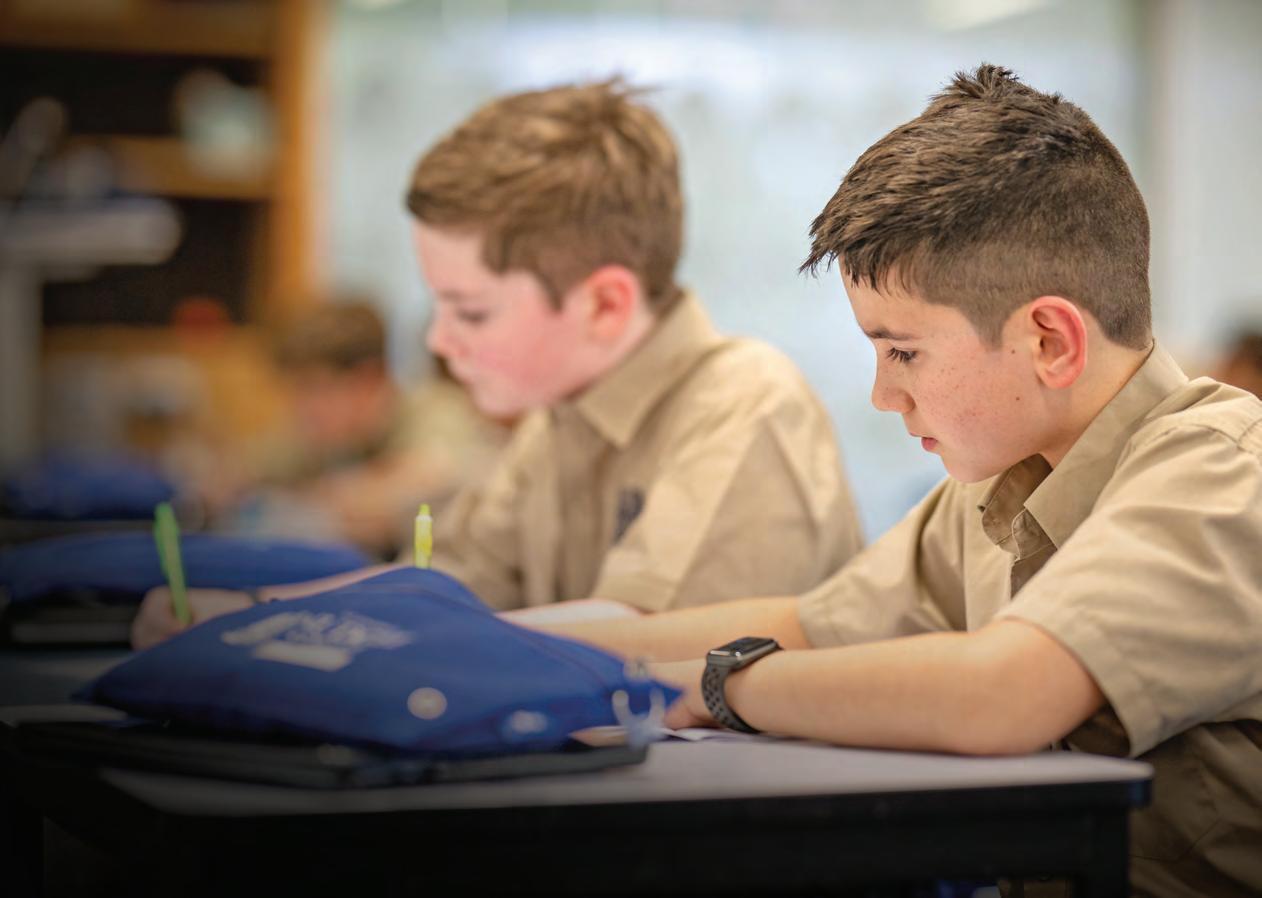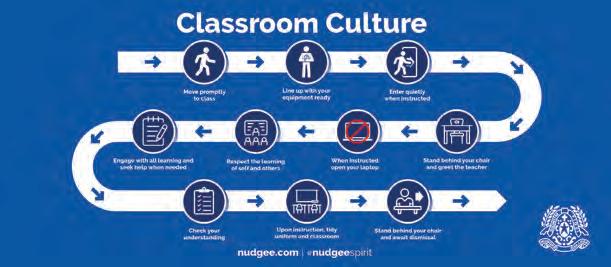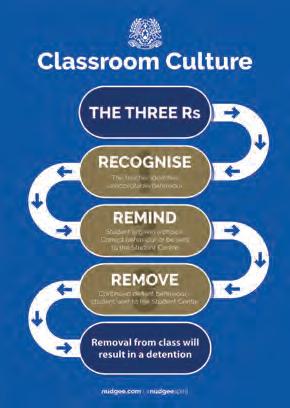
4 minute read
Fostering Classroom Culture
The media buzz around education continues to increase in volume. From nationally declining NAPLAN and PISA results, to COVID-fuelled knowledge gaps, to ATAR leagues tables and the evolving teacher shortages, the state of education in Australia remains in a state of flux.
At Nudgee College, we are acutely aware of the need to provide an educational experience that provides our students with the knowledge and skills to access the full breadth of pathways available to them beyond our College gates.
Heeding the call for change
After a year of observing, collecting data, speaking with staff and students, and engaging in rigorous research, it became clear that learning and teaching at Nudgee College needed to evolve. As such, 2025 marks the beginning of bold and exciting changes to the way we approach teaching and learning, aligning our classroom practices with evidencebased research to support deeper understanding, stronger retention, and greater academic success across the College.
Developing our Classroom Culture
At the heart of our renewed approach is a commitment to aligning teaching with how the brain learns best. Research from cognitive science – particularly Cognitive Load Theory and Rosenshine’s Principles of Instruction –shows that students learn most effectively when new information is delivered in manageable steps, with plenty of guided practice and opportunities for review. These approaches are grounded in decades of research and give teachers practical strategies to reduce unnecessary mental overload, allowing students to focus on the concepts that matter most. By employing a school-wide instructional framework and agreed-upon, evidence-based behavioural and learning routines, we’re removing unnecessary cognitive load and freeing up space in working memory for more rigorous learning to occur. This evidenceinformed practice is not just about improving test scores; it’s about creating confident, capable learners who can apply their knowledge in meaningful ways, both now and in the future.
These changes to learning and teaching at the College are more than just adjustments – they represent a renewed focus on high expectations, structured support, and calm, focused classrooms where all students can thrive. This classroom culture is supported by a clear and predictable behaviour management framework (referred to as the 3R’s) designed to preserve optimal learning conditions for all students.

Creating classrooms where learning thrives
We introduced the 3 R’s – Recognise, Remind, Remove – as a consistent and effective behaviour management strategy to create calm, focused classrooms where learning can thrive. Based on Tom Bennett’s Running the Room and The Classroom Management Handbook by Mark Dowley and Oliver Lovell, the approach supports staff in responding to behaviour clearly and fairly. By recognising the behaviour, reminding when it persists, and removing the student when necessary, we ensure all students understand expectations and consequences. This structured process helps build respectful relationships, reduces disruption, and empowers teachers to manage their classrooms with confidence and consistency.
What are we noticing now?
This term has seen a marked improvement in classroom culture at the College, With the introduction of the classroom procedures and The Three R’s, there has been a noticeable shift toward calmer, more productive learning environments. The implementation of these new classroom culture processes – anchored in evidence based strategies – has significantly enhanced both student engagement and teacher efficacy. Tom Bennett’s Running the Room, puts a clear emphasis on the importance of clear routines, consistent expectations, and strong teacher presence. These foundations have enabled students to feel safe, respected, and ready to learn. Complementing this, Robert Marzano’s Classroom Management That Works has guided our efforts to balance high expectations with positive relationships, ensuring that behaviour management is both proactive and supportive. Teachers have reported that the difference these new procedures are having on their teaching is immense, with one member of staff highlighting their ability to cover content that would have previously taken two lessons, in now only one lesson. Students are reporting an improvement in the productivity in their classes, the positive relationship between students and teacher, and an overall calmness.


Overall, the result has been a palpable improvement in classroom climate: students are calmer, more focused, and increasingly independent in their learning. Teachers report feeling more in control and better equipped to manage challenges, leading to a more purposeful atmosphere across the school. These changes are not just theoretical; they are visible in the day-to-day rhythm of our classrooms, where learning time is maximised and students are flourishing. The synergy of these expert-informed practices has laid the groundwork for long-term cultural transformation, helping us build classrooms where every learner can thrive.
Ms Suzie Tjin, Dean of Learning & Teaching
Ms Lynsey Hale, Dean of Students (Acting)










